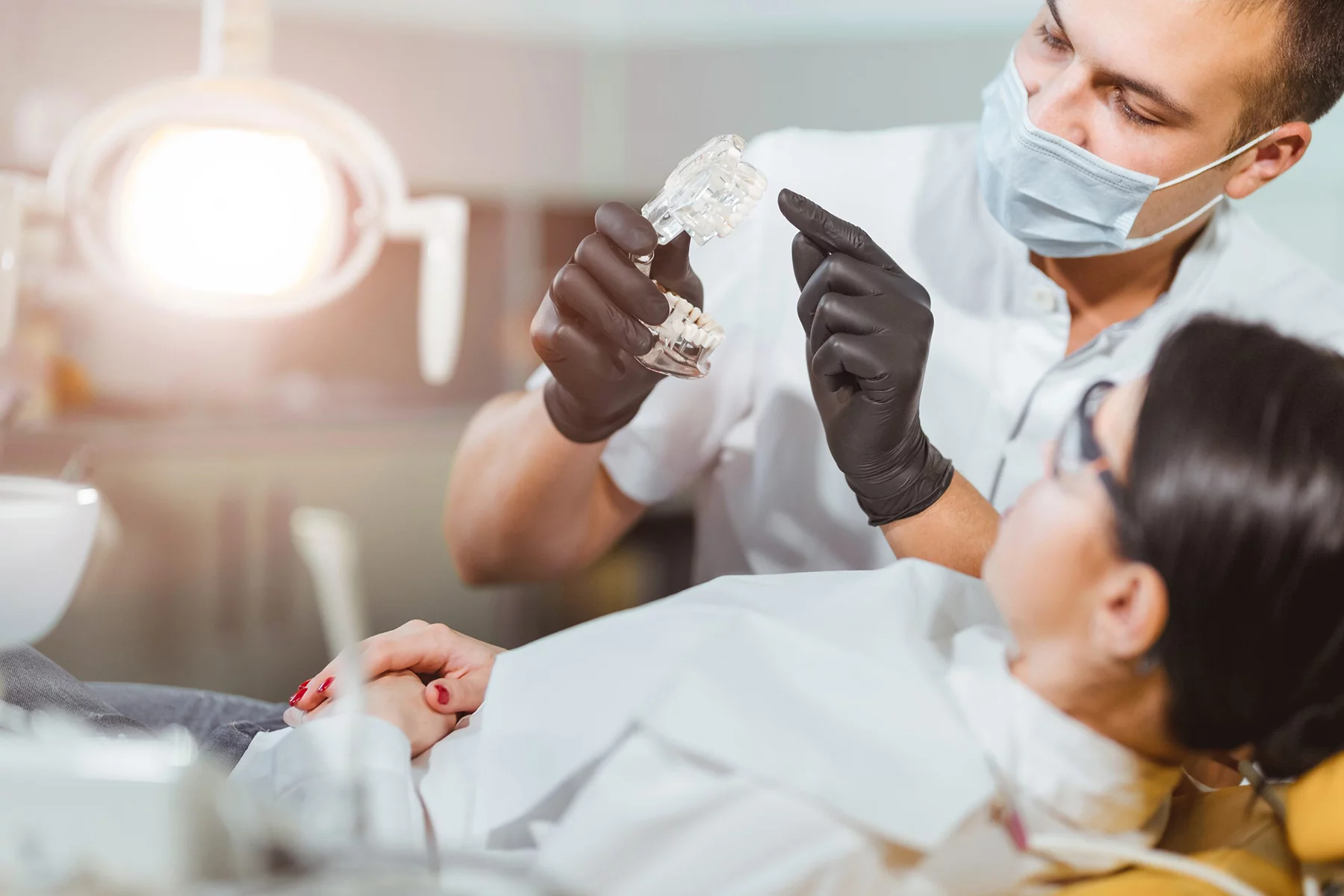Fortunately for newcomers to Austria, high-quality dentists are in vast supply. Many also speak English, but you’ll probably need to look in city centers rather than rural areas to find them.
This guide explains all you need to know about dentists – how to find one, what services they offer, and how to cover the costs.
Learn more in the following sections:
- Dental care and the healthcare system in Austria
- Is there public dental care in Austria?
- How does private dental care work in Austria?
- How to find and access low-cost dental care in Austria
- Dental care for children in Austria
- What to do in a dental emergency in Austria
- Dental insurance in Austria
- How to find a dentist in Austria
- How do dental appointments work in Austria?
- Useful resources
Dental care and the healthcare system in Austria
Everyone in Austria has access to medical care – everyone can get essential medical help, and all legal residents can benefit from public health insurance.
Austria boasts a very high standard of dental care. As of 2022, there were 5,564 dentists working in the country.

All dentists in Austria must be registered with the Austrian Dental Chamber.
Is there public dental care in Austria?
The vast majority of dentists in Austria work through the social security system. What’s more, about 99% of the population has access to basic dental care through this system. Basic dental treatments covered by state care include check-ups, cleaning, and fillings.
Meanwhile, procedures such as implants, bridges, and orthodontics are not covered by public health insurance. Therefore, dental tourism is popular among Austrians who seek out costly procedures in neighboring Hungary and Romania to reduce overall costs.
Each region in Austria organizes its own health and dental care, which means that for more extensive treatments, you may need to visit bigger cities such as Vienna for specialized care.

Sebastian Arthofer
Krankenversichern
Insider tip: Public vs private coverage
Dental implants are not covered by public insurance; you’ll either need to pay €2,500–3,000 per implant or get private health insurance to offset the expense.
How much does public dentistry cost in Austria?
To access a public dentist, you just need to sign up for public health insurance and an E-card. This scheme costs €14.65 per year and covers basic treatment.
Basic services are free of charge from contracted dentists – these usually display a “Kassenarzt” (contracted doctor) or “Alle Kassen” (state dentists) sign. For non-contracted dentists, you pay up front and receive 80% of the cost back from the Austrian Health Insurance Fund (Österreichische Gesundheitskasse – ÖGK).
How does private dental care work in Austria?
As with healthcare, many people take out private dental care to speed up treatment and access a wider variety of services. Private care also offers reduced waiting times and increased comfort. If you anticipate needing more advanced treatment than state dental care offers, private dental care is the way to go.
To cover the costs of private dentistry, it’s probably worth taking out dental insurance. You can find out more about different insurance options further down the guide.
How much does it cost to visit a private Austrian dentist?
Austrian law prohibits dentists from publishing their exact prices online, which means you may only know your costs after a preliminary examination.
However, the Austrian Dental Chamber outlines price recommendations for private services. These include the following:
- Consultation: €99 (€29 for a repeat consultation or check-up)
- Professional cleaning: €119 for 30 minutes
- Extraction with anesthesia: €95 (€126 for complicated removals)
- Root canal: €215
- Fillings: €58–156
- Crowns: €929–1,296
- Denture: €1,719
- X-ray: €24
How to find and access low-cost dental care in Austria
Thankfully for Austrian residents, essential dental services are free, so you shouldn’t have too much trouble getting the treatment you need. Because the state system covers everyone, there are no specific concessions for groups such as unemployed people or pensioners.

However, the ÖGK runs dental centers across the country, where you can access a wider range of services. Their prices are standardised, so may be cheaper than other dental practices.
Patients who don’t mind traveling abroad may find it cheaper to get dental treatments across the border in Hungary.
Dental care for children in Austria
Just like adults, children in Austria have access to free basic dental care. The country’s extensive social security system covers it, and as long as a child’s parents are registered, the child is covered as a dependent.
Unfortunately, orthodontics, including braces and retainers, are only available for free if medically necessary. You can read more about healthcare for children in Austria in our dedicated article.
What to do in a dental emergency in Austria
If you have a dental emergency, such as losing a tooth, an infection, severe pain, or an injury, you should contact an emergency dentist. You have a few options in Austria:
- Contact an on-call emergency dentist (Zahnärzlicher Notdienst) – you can find contact information for your region on the Austrian Chamber of Dentists website.
- Call or visit an ÖGK dental health center if open.
- You can also visit a hospital for emergency dental treatment. For example, Vienna has the Emergency Clinic of the University Clinic of Dentistry Vienna, which is open from 08:00 to 14:00 on weekdays, and 08:00–12:00 at weekends.
The following procedures are typically covered by social security:
- Pain relief
- Tooth extraction
- Root canals
Remember to bring your E-Card with you to show that your treatment is covered. If you visit a private dentist, keep your receipts for reimbursement.
Dental insurance in Austria
Although basic dental treatment in Austria is covered by social insurance, you’ll need to pay for cosmetics, advanced treatments, orthodontics, premium prosphetics, and preventative care. For some treatments, you may be able to claim a partial reimbursement from the ÖGK, so it’s worth checking.
Patients who expect to need regular advanced, cosmetic, or preventative treatment may find it cost-effective to take out private health insurance. There are plenty of local private insurers offering dental insurance, but you can also find premiums that come as part of a wider healthcare policy.

Finally, expats who need to avoid coverage gaps or who expect to travel in different countries may benefit from an international health insurance plan. These plans can be tailored to include dental care. Providers include:
How to find a dentist in Austria
Each different region in Austria organizes its own dental care. You can search for dentists in your local area using What Clinic, a handy listing of dental practitioners throughout Austria. Alternatively, you can consult DocFinder, which lists the top-rated dentists in Austria.
How to find an English-speaking Austrian dentist
There are many English-speaking dentists in Austria – to find one, you have several options. The directories listed above can help you, as well as the Austrian Dental Chamber’s search tool. However, the latter does not specify languages spoken, so you’ll need to contact the dentist yourself to find out whether they speak English.
Meanwhile, you can also ask in local expat groups on social media or search on forums like Reddit to find out about other people’s experiences. If you have private health insurance, you can usually find an English-speaking medical professional through their website.
How do dental appointments work in Austria?
When you visit a dentist in Austria, you need to take along your E-card and identification. You will be asked to fill in a form with any allergies and previous treatments as well as your contact details. Essentially, this is your registration. You are free to visit other dentists in Austria, but you’ll need to fill in a new form for each one.
If you are having a check-up, you will typically see a hygienist first. They will check your teeth and gums before a dentist examines you. If follow-up procedures are necessary, the dentist will usually make an appointment with you on the day. If not, they generally won’t contact you again until your next check-up. Ordinarily, this will either be annually or after six months.
Useful resources
- Austrian Dental Chamber – the professional representation of all dental practitioners in Austria
- What Clinic – a handy listing of dental practitioners in Austria
- Österreichische Gesundheitskasse – the largest social health insurance company in Austria






